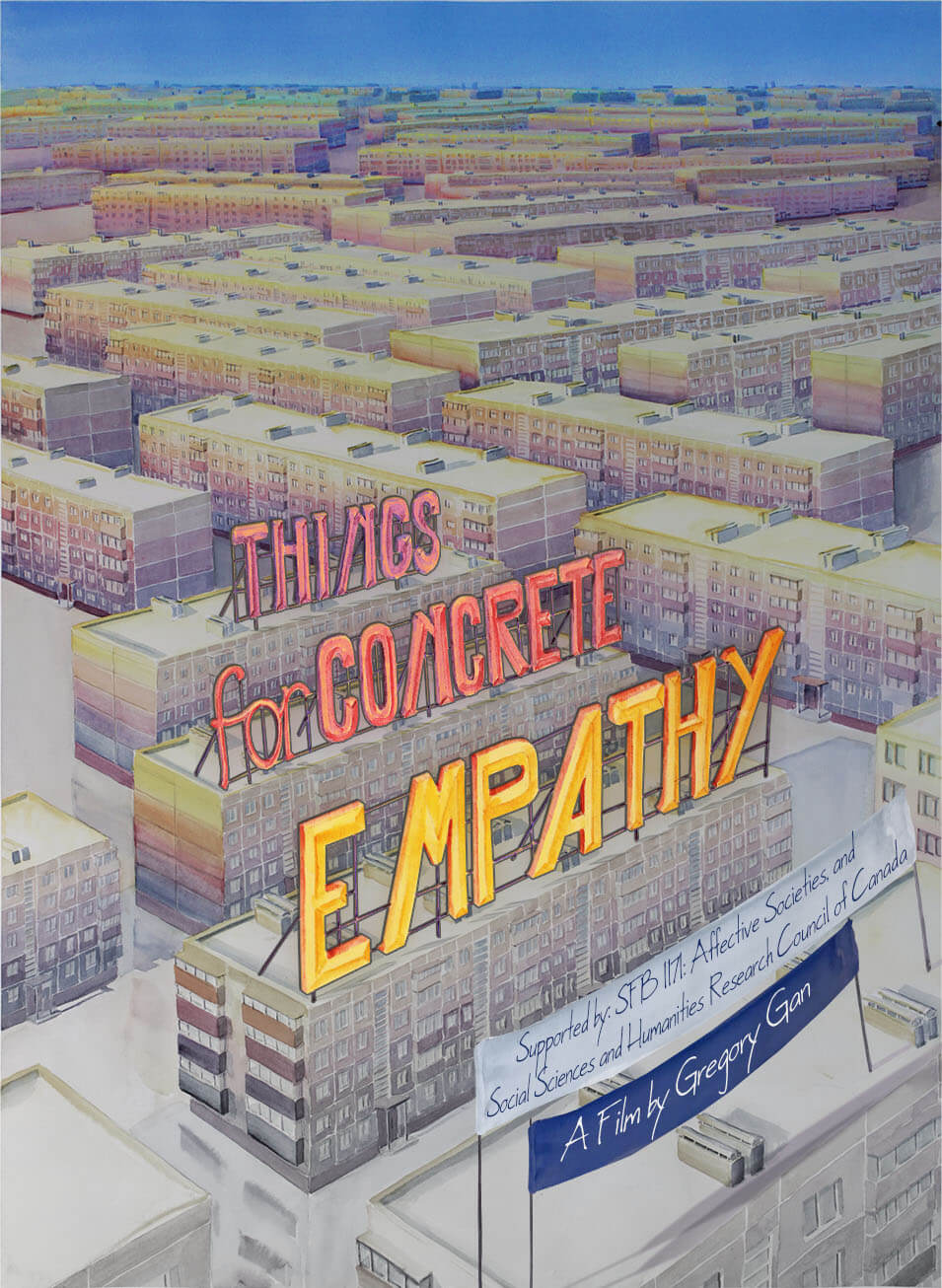Based on their experiences living and working amongst Soviet-era concrete, panel-block apartments, the filmmaker, together with five visual artists, examine past and present attitudes towards their former homes. Combining personal stories with experimental research on the history of twentieth-century art and architecture, the film creates both a compelling narrative, and a contemporary aesthetic of panel-block mass housing using original watercolors, put into motion using digital animation and stop-motion techniques. As global and personal histories interweave, the film explores notions of moral and political responsibility as evinced in physical space. Empathy for Concrete Things thus considers how modern architecture has become the site of both utopian fantasies, and major calamities that shaped the history of the twentieth century. As former postsocialist countries have been thrust, or hang on the edge of new humanitarian and political crises, the film expresses its own rallying cry against destruction, all from the vantage point of concrete, panel-block apartments.
Director – Gregory Gan
Gregory Gan was born in the former Soviet Union, in 1984. When he was ten years old, his family relocated to France and then to Canada, where he grew up. Gregory has trained in visual anthropology at the University of Toronto (BA, 2006), Memorial University of Newfoundland (MA, 2010), and The University of British Columbia (PhD, 2019). As part of his doctoral research, Gregory created a traveling, multi-media installation involving microcontrollers, video-mapping, and ceramic objects. His other research interests include decolonial scholarship, transnational migration, and material culture. He has also trained as a filmmaker (Ryerson University, 2007; SoundImageCulture, 2010), having completed two award-nominated feature-length films. His most recent film, Empathy for Concrete Things (2023), completed by digitally and manually animating original watercolours, was completed as part of a postdoctoral fellowship on postsocialism, architecture, and affect. Gregory lives and works in Berlin.

